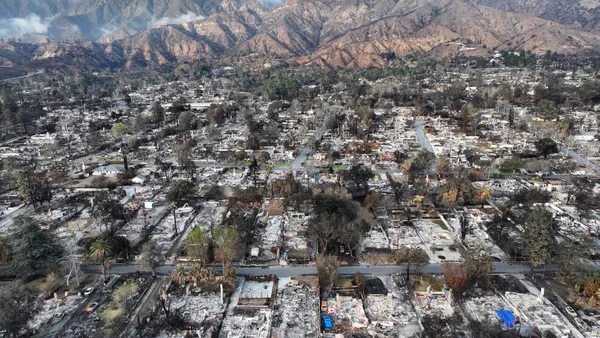Dive Brief:
- New York has released its fourth annual update to its open data report, Open Data for All. The city passed an open data policy in 2012 and released its first report in 2015.
- This year's report includes 629 new data sets from 38 agencies, bringing the total number on the platform to more than 2,000. It notes 419 other data sets will be ready for future release. The city removed 97 data sets that do no qualify as public data sets because they are low value, inaccurate or outdated.
- The city's open data team has begun searching for representatives to serve on the first Open Data Advisory Council — to develop strategic partnerships and receive feedback on the city's open data strategy — and an Open Data Youth Leadership Council — allowing high school students to share solutions for community change based on open data.
Dive Insight:
The report includes data about a plethora of topics including taxi trips, domestic violence, poverty, Department of Transportation street furniture locations, dog licenses and Department of Health and Mental Hygiene information about rooftop drinking water tank inspections. The city said this year's report update "pulls back the curtain on digital government to show how the city collects data, how data powers city operations and how publishing that data publicly creates value in communities across the five boroughs."
The report shows the wide scope of data that cities collect. Cities gather increasingly more data about citizens as society becomes more digital and municipalities delve further into the smart city space. Many times citizens do not even know local governments are collecting data about everyday occurrences.
With the growth in data collection and analysis comes fears about privacy and security. A recent report indicates Americans' trust in lawmakers has dipped — in part because of the explosion of digital information and its associated abuses.
When cities clamp down on their data and use it in secrecy, they further erode the public trust; having an open data policy in place increases transparency. Informing the public about what information gets collected and why helps citizens understand the process and can increase public trust in government, while ensuring that the data collection takes place to improve city operations and services.
“Open data powers the research, analysis, and reporting of essential city services. The more varied datasets we incorporate today into the Open Data For All and the NYC Open Data Plan, the more future generations will stand to benefit from historical statistics. This annual report shows a true commitment by the City of New York to a more transparent and efficient government," City Council Member Peter Koo, Chair of the Committee on Technology, said in a statement.
Plus, data collection transparency helps the city uncover solutions to a variety of problems. Citizens or businesses that can access the data may have industry knowledge or fresh ideas they could share to improve operations and services. That's part of the concept behind forming the two advisory councils, including one especially for young people, who have grown up in a data-rich society.
“Access to the data also empowers entrepreneurs to innovate and build new tools that can benefit all New Yorkers," Alby Bocanegra, Interim Chief Technology Officer in the Mayor’s Office of the CTO, said in a statement.












